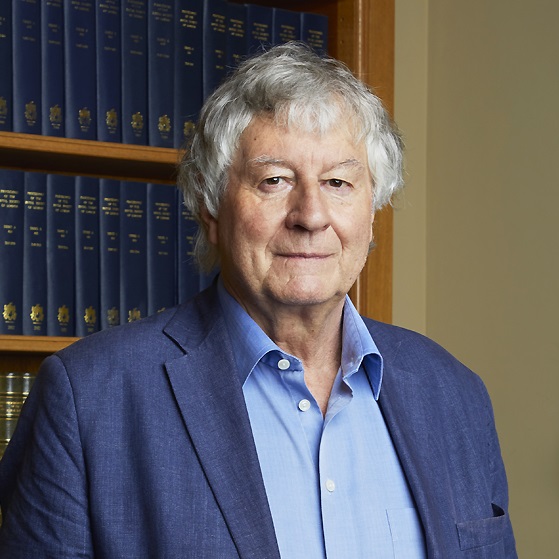This blogpost offers a few key points from Ed Felton's lecture at the NeurIPS 2018 conference last week.
Why should public policy matter to AI researchers? What role can researchers play in policy debates? And how can researchers help bridge divides between the research and policy communities?
Policy was centre-stage at the opening of the main NeurIPS 2018 conference last week, as Ed Felten, Robert E. Kahn Professor of Computer Science and Public Affairs at Princeton University, used his conference speech to argue that machine learning researchers have a duty to participate in public life and play a constructive role in policy debates. This blogpost offers a few key points from Ed’s lecture, and how this relates to the Royal Society’s work at the science-policy interface.
AI in policy debates
The potential of AI to transform industry and society is central to many public and policy debates about these technologies, whether about AI ethics or the future of work. Industry leaders and politicians alike have spoken of great promise and significant risks arising from advancing AI technologies, recommending a range of policy measures to steer their development. Whether you subscribe to the hype around the potential of AI, or agree with the proposed policy responses, these narratives about the future of AI matter: they frame much of what policymakers read and hear about AI, and potentially influence decisions about its funding, regulation, or application. Policymakers are already developing a policy environment around AI, whether through additional research funding or new regulation.
A well-founded, democratic discussion about the future of AI is important in creating the conditions that can bring the benefits of these technologies into being safely and rapidly. At this stage in the policy debate, researchers have an important contribution to make.
Understanding the policy environment
To use their voices most effectively in policy debates about AI, it is important that researchers have a sense of the dynamics of the policy environment in which they are working.
The political system and policy-making process are complex: there are often competing priorities for political attention or legislative time; policy areas can interact with each other in sometimes unexpected ways; and there are many voices competing to be heard, often claiming expertise. Values and evidence might both be contested or in flux, as understandings of an issue develop or public debate evolves, and policymakers might be navigating different types of evidence from constituents, businesses, researchers, and public agencies. Amidst this complexity, policymakers have to take decisions about the future, based on uncertain or incomplete information.
When thinking about AI policy, the speed of technological development, potential range of applications, and hype surrounding the field are all complicating factors. In navigating this complexity, researchers can play an important role in anchoring debates about AI in technical reality.
Building a well-founded debate
Ed set out three calls to action for researchers to contribute to a well-founded policy debate about AI:
Engage in a two-way dialogue with policymakers: it can be tempting to think of research as ‘information provision’, or researchers as simply a provider of scientific ‘truth’. However, if researchers are to maximise their impact in policy debates, the exchange of ideas can’t only be one-way. To have an impact in policy debates, their contributions need to take into account what policymakers might already have heard about a subject and the issues or approaches that resonate with them (what Ed called their existing knowledge and preferences). This type of understanding and exchange is best developed over time, with researchers and policymakers interacting at multiple stages in the policy-making process, and developing relationships based on mutual trust.
Put boots on the ground: to have a direct influence on policy design, researchers need to be in the room when decisions are taken. This means taking posts as advisers or civil servants. There already exists a range of such posts at both local and national government levels, alongside a range of opportunities to engage less formally in policy development and consultations.
Recognise and reward policy engagement: Improving engagement via these routes requires career paths that allow researchers to move between policy and research careers, with incentive structures that reward or recognise such work. Ed pointed to a range of US-based initiatives that seek to bring those with technical expertise into policy-oriented roles, such as the US Digital Service.
Policy engagement and the Royal Society
Bringing science into policy-making is a core part of the Society’s work, and the Society convenes a number of activities that seek to bridge the science-policy divide:
- Royal Society Pairing Scheme: every year, the pairing scheme offers researchers the opportunity to work alongside policymakers and parliamentarians, gaining insights into the policy making process. This is a two-way exchange: policymakers then return the visit to the research institutions of those they are paired with, creating spaces for researchers to build relationships with those directly shaping policy
- Policy associates: the policy associates programme arranges 3-9 month placements for researchers that the Society funds in government departments, where they can get experience of working on policy challenges.
- Research culture: the Society’s research cultures programme has been working to change how researchers and others value different types of activities- including policy engagement.
For those with a specific interest in AI, the Society has an active AI policy programme, much of which builds from the work of our machine learning project. At the start of new projects, we’ll publish calls for evidence and contributors, and you can find out more about these via the Society’s policy newsletter.





